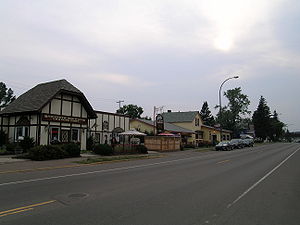
Image via Wikipedia
This insightful article describes the typical woes that municipalities and counties go through with the incumbent carriers. Lake County wants to build an open-access network that will offer modern telecom services to this beautiful part of the country. This network could benefit not only the residents but also the incumbents. The problem is that the incumbents are happy with the status quo because they do not have to compete for market share or invest capital in their network; thereby, preserving their margins. Companies like Frontier and Mediacom should embrace these networks as a way to reach more customers and increase ARPU without massive capital expenditures.
My family has vacationed in this area for years. It was one of the few areas of the country where I could truly disconnect from work and the world. My pager wouldn’t even work in many parts of the Gunflint Trail. Such a build-out in Lake County would mean an end to my escape from civilization. It is a small loss for me and a huge gain for the citizens of this wonderful part of Minnesota.
The first public shots have been fired by a potential competitor with Lake County’s fiber-to-home phone, television, and Internet service project.
By: Mike Creger, Lake County News Chronicle
The first public shots have been fired by a potential competitor with Lake County’s fiber-to-home phone, television, and Internet service project. Mediacom, a cable and internet provider in Two Harbors and Silver Bay, sent letters to the mayors of both cities late last month asking them to reconsider the joint powers agreement the city councils approved as part of Lake County’s application for funds for the countywide project.
But the company may have misfired. In the letter, it cited a portion of the agreement that doesn’t exist; county officials say they believe Mediacom was basing its argument on an early draft of the final document.
Continue reading









